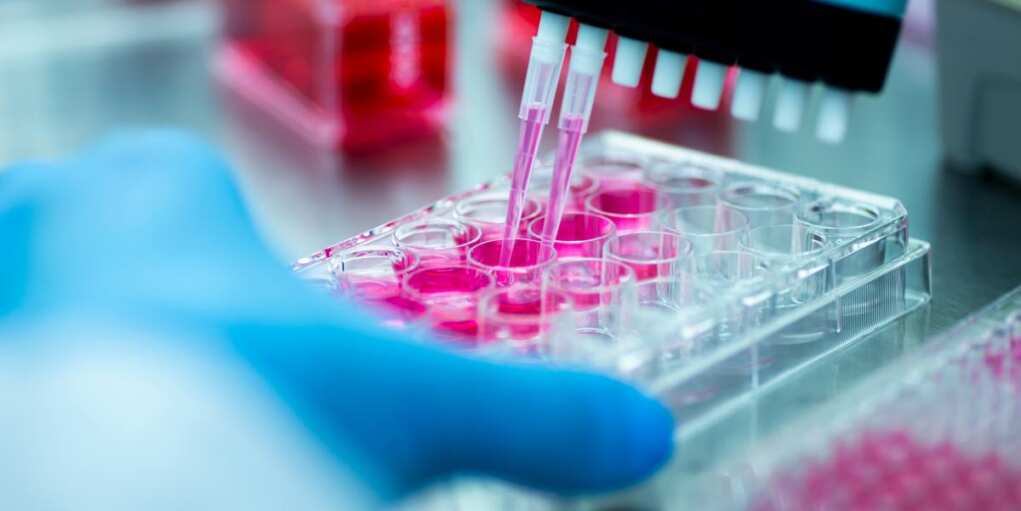Doctors Find The Key To Killing Cancer

Medical experts are increasingly pointing to diet as a critical factor in fighting cancer and other serious illnesses.
Dr. Mark Hyman recently hosted Dr. Jason Fung on his podcast to discuss how periods of not eating might help patients battling cancer. Fung is a Canadian doctor, author and researcher who specializes in this area.
Fung explained that going without food triggers the body to shift from building new cells to repairing existing ones.
“The whole idea of fasting is that you’re trying to put the body into this sort of regenerative maintenance mode. Because what we’ve recognized is … you can go into growth mode, or you can go into sort of this cell maintenance repair mode.”
Whether cells grow or repair depends on if food is available. Eating signals cells to multiply and expand. Not eating tells the body to focus on fixing what already exists instead of making more.
The doctor compared this to how cars work. Driving fast wears out an engine quickly. But taking the vehicle to a mechanic for regular service keeps it running longer.
“That’s the point of the human body, too. You can go for growth, or you can go for longevity or cellular maintenance, but you’ve got to have a bit of both. It’s a balance there. It’s not all growth.”
For cancer patients, constant eating creates a problem because it keeps pushing cells to multiply. Cancer is a disease where cells are already growing out of control.
“You’re basically feeding into that growth. And that’s going to be very, very bad for you.”
Going without food switches cells into repair mode, which helps the body handle chemotherapy and radiation better. Studies show that patients who skip eating right before, during and after chemo experience fewer terrible side effects.
“You can take care of your body and actually put the cancer at a disadvantage at the same time.”
Chemotherapy drugs work by targeting whatever cells are dividing most rapidly in the body. This usually means hair and the digestive system get hit hard, causing people to lose hair and feel sick.
“So, if you can put those cells into a quiescent sort of repair mode, [they’re] not going to sustain as much damage from the chemotherapy. And instead, the cancer cells — which can’t stop their growth, they’re always trying to grow — they can’t do that. So, therefore, they’re going to sustain full damage from the chemotherapy while your body is relatively protected.”
Dr. Frank Dumont from Virta Health in Colorado offered additional perspective on fighting cancer through nutrition. He works with patients to improve their metabolic health through diet changes.
Dumont pointed out that people can get similar benefits without completely stopping eating. Changing what you consume works almost as well as restricting when you eat.
Cutting back on carbohydrates produces many of the same effects as going without food for periods of time.
“You see the same types of benefits. When you do that, glucose levels start to go down, insulin levels go down, inflammation goes down.”
People have options for how they want to approach this strategy depending on what works best for them.
“You can either adjust what you’re eating, or you can do things like restrict how much or when you’re eating. How you do that depends on what makes the most sense [for] your situation and what you can tolerate.”
High insulin levels cause problems that can help cancer grow. Some types of cancer cells use sugar as their only energy source while normal cells can burn fat instead.
“The bottom line is, our body is much more flexible. If you can start to get the nutrition to match up with the metabolism, that often means lowering the glucose intake — and, in a way, starving the cancer.”
The key is finding ways to fuel healthy cells with good nutrition while depriving cancer of what it needs most.
These doctors are suggesting a fundamentally different way to think about cancer treatment. Instead of only trying to kill cancer with drugs, patients can change their internal environment to make their bodies hostile to cancer growth.
Normal cells have flexibility that cancer cells lack. Healthy cells can switch between growth and maintenance modes. Cancer cells stay stuck in constant growth, which becomes their weakness when patients manipulate their diet.
The practical implications for cancer patients are significant. Many people suffer terribly from chemotherapy side effects. If dietary strategies can reduce hair loss, nausea and other problems, that represents a major quality of life improvement.
For people who find extended periods without eating too difficult, the option to achieve similar results through low-carbohydrate eating makes this approach more accessible to more patients.
